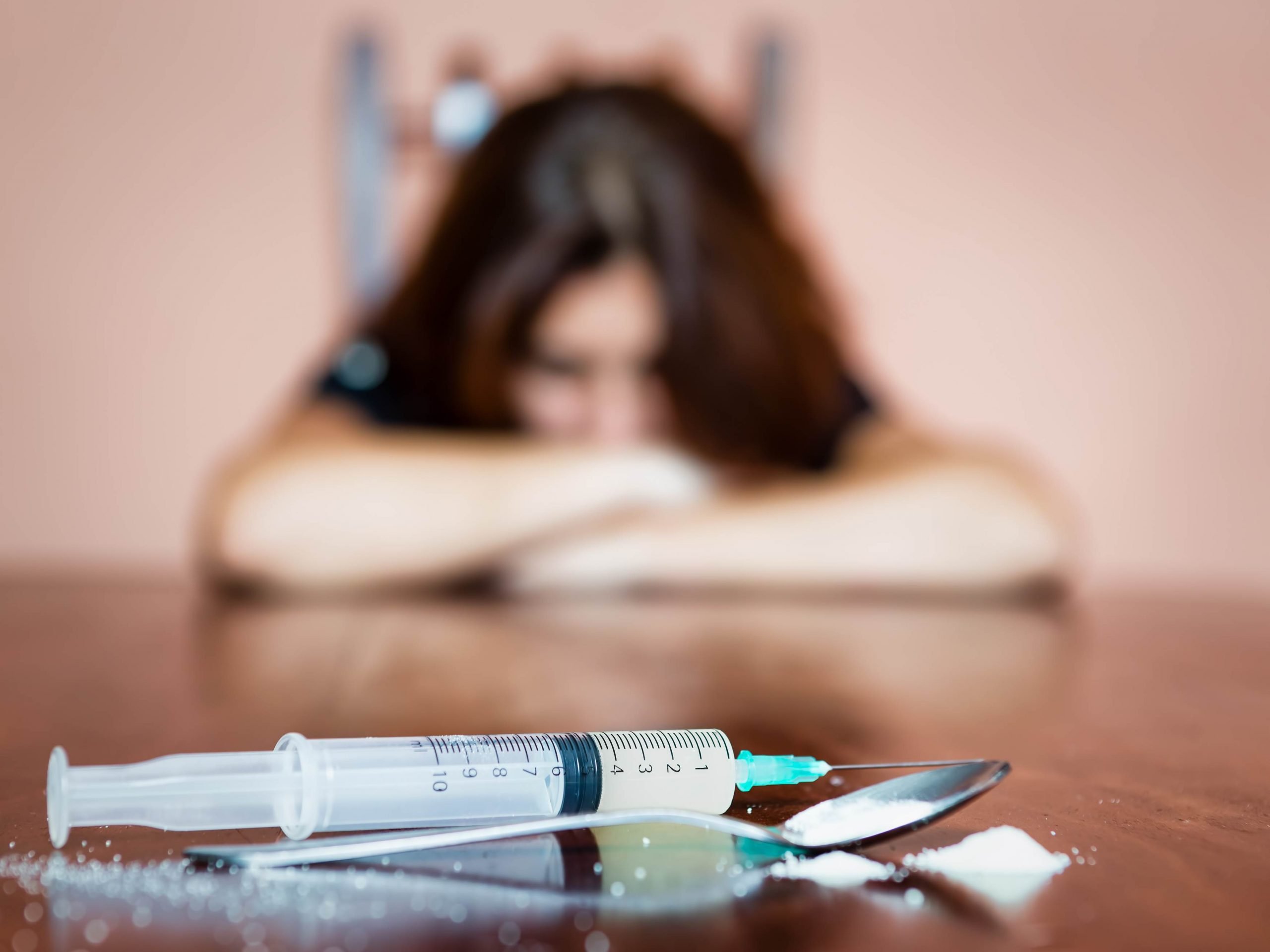Heroin, commonly known as brown sugar is a highly addictive substance. While using it people have intense feelings of euphoria and relaxation. It starts as a recreational use, and over some time, a person becomes addicted to it. When a person develops dependence, not taking brown sugar would cause body aches, decreased sleep, yawning, diarrhea, watery eyes, watery nose, lack of concentration, aggressiveness, low mood, anxiety, etc. Hence to function properly and to stop these unwanted withdrawal symptoms he/she is bound to take brown sugar again. The cycle continues and the person is trapped in this addiction cycle.
Though it starts as a behavioral issue, with regular use it has biological implications. It leads to alteration in neurotransmitters, reward circuits, and other brain structures. It can also result in severe health complications like respiratory depression, cardiovascular disease, and infectious diseases from needle sharing. Psychologically, dependence manifests in cravings, impaired decision-making, and co-occurring mental health disorders such as depression and anxiety. Socially, relationships suffer due to lying and manipulation, while legal and financial issues arise from risky behaviors to obtain heroin. Overall, heroin dependence severely impacts all aspects of an individual’s life.
Management of Heroin Addiction
Detoxification:
Medical Supervision: Heroin withdrawal can be intense and uncomfortable, often including symptoms like nausea, vomiting, muscle pain, and anxiety. Medically supervised detoxification in a hospital or treatment center can manage these symptoms and ensure safety.
Medications: Medications such as methadone, buprenorphine, or tramadol may be used during detoxification for managing withdrawal symptoms and reduce cravings.
Behavioral Therapies:
Cognitive Behavioral Therapy (CBT): Helps individuals recognize and change behaviors and thought patterns that contribute to drug use.
Contingency Management: Provides incentives for positive behaviors such as drug-free urine tests.
Motivational Interviewing: Encourages individuals to explore and resolve their ambivalence towards quitting heroin and making positive changes.
Support Groups:
12-Step Programs (e.g., Narcotics Anonymous): Provide peer support and guidance through a structured program.
Group Therapy: Allows individuals to share experiences and receive support from others facing similar challenges.
Long-Term Maintenance:
Opioid Substitution Therapy (OST): Involves long-term use of medications like methadone or buprenorphine combined with counseling and support services.
Regular Medical Monitoring: Helps manage any physical or mental health issues related to heroin use or recovery.
Addressing Co-occurring Disorders:
Many individuals with heroin addiction have co-occurring mental health disorders such as depression or anxiety. Integrated treatment for both addiction and mental health issues is crucial for successful recovery.
Social Support and Rehabilitation:
Family Therapy: Involves family members in treatment to improve communication and support for the individual in recovery.
Vocational Training and Support: Helps individuals regain employment skills and stability.
Prevention of Relapse:
Identifying Triggers: Learning to recognize and avoid situations, people, or emotions that may trigger the urge to use heroin.
Developing Coping Strategies: Teaching skills to manage stress, cravings, and difficult emotions without resorting to drug use.
Effective management of heroin addiction requires a comprehensive, individualized approach that addresses the physical, psychological, and social aspects of the addiction. By combining medical treatment, behavioral therapies, social support, and long-term rehabilitation, individuals can achieve and maintain recovery from brown sugar addiction.




